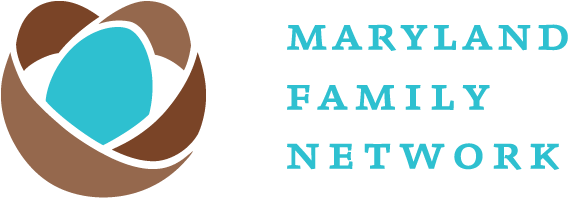This is one of the ways policy making is supposed to work.

In 2020, MFN became aware of a fantastic program called Growing Opportunities for Family Child Care (or GOFCC) to recruit and support women on their journey to become licensed family child care providers in Montgomery County. It seemed smart, targeted, and effective, producing early results that caught our attention. MFN brought the idea to some of our legislative champions in the 2021 session, hoping to establish a pilot program and replicate the success in Montgomery County for other jurisdictions around the State. The pandemic was raging, and everyone was worried about child care.
Now, four years later, the 446th session of the Maryland General Assembly is well underway, and the Maryland Family Network team is in Annapolis almost daily with budget hearings, bill hearings, collaboration with partners and advocates, and – always – meetings with legislators. Last week, the budget for the Division of Early Childhood at the Maryland State Department of Education was heard and MFN was there to champion the administration’s historic investment in the Child Care Scholarship Program. In addition, we offered testimony for HB 1139/SB 882 in support of GOFCC.
By way of background, licensed Family Child Care (FCC) programs, as distinct from child care centers, are usually operated by a woman in her home caring for up to eight children. FCC is a critical component of the overall supply of child care and a necessary and often preferable option for parents due to cost, geographic proximity, hours of availability, and cultural or linguistic concerns. Yet, the number of FCC programs in Maryland has declined precipitously over the past two decades—from approximately 12,500 in 1996 to 4,300 in 2023—a downward trend that is, unfortunately, consistent with what we’re seeing nationwide.
The GOFCC legislation passed in 2021 created a pilot program to increase the supply of FCC programs and ensure the sustainability of new and existing ones. The legislation offered funds for replicating GOFCC in three additional jurisdictions, provided they could secure a local match. MFN has run this program, in partnership with the Maryland State Department of Education, and the big news is that we have outcomes and results to share that are pretty impressive. From January 2023 to January 2024, 101 new family child care programs have opened around the state as a direct result of participation in this program, which means 796 new child care slots. There are currently 33 individuals who have submitted their paperwork and are awaiting a response from licensing, plus 138 individuals who are currently engaged with a coach and working their way through the startup program (which means another 1,368 child care slots when all is said and done). We have also cut the average length of the licensing process from 12 to five months for our GOFCC participants, which means businesses are open, women are earning, and parents are able to access child care sooner than they were previously.
This is one of the ways good public policy is supposed to work: we find a promising idea, we pilot it, we collect and evaluate results, and when the results warrant, we build on that success. And that’s what this year’s HB 1139/ SB 882 will do. It will take the time-limited and low-cost pilot created in 2021, and make it permanent. That’s not just a win for Maryland Family Network – it’s a win for every Maryland family!

Laura Weeldreyer is the Executive Director of Maryland Family Network. Over the course of her career, she has devoted herself to improving educational outcomes for students ranging from babies and their families all the way up to senior high school students who were getting ready to graduate. This blog is an opportunity for Laura to share her experience and expertise but also to learn from her readers.

